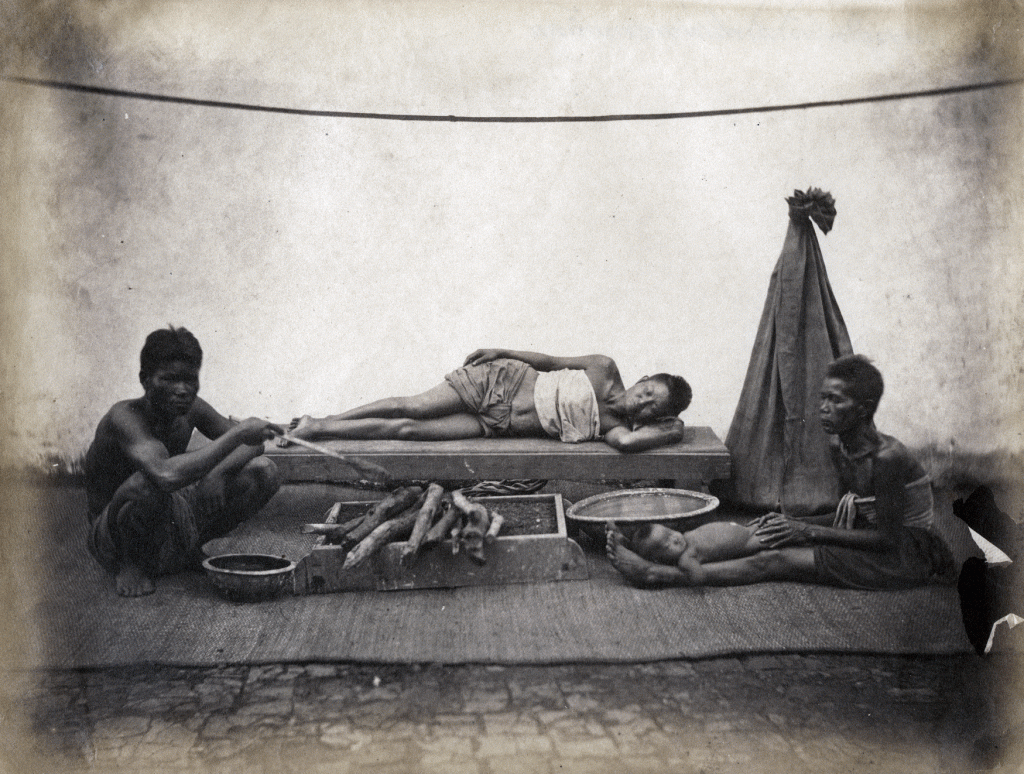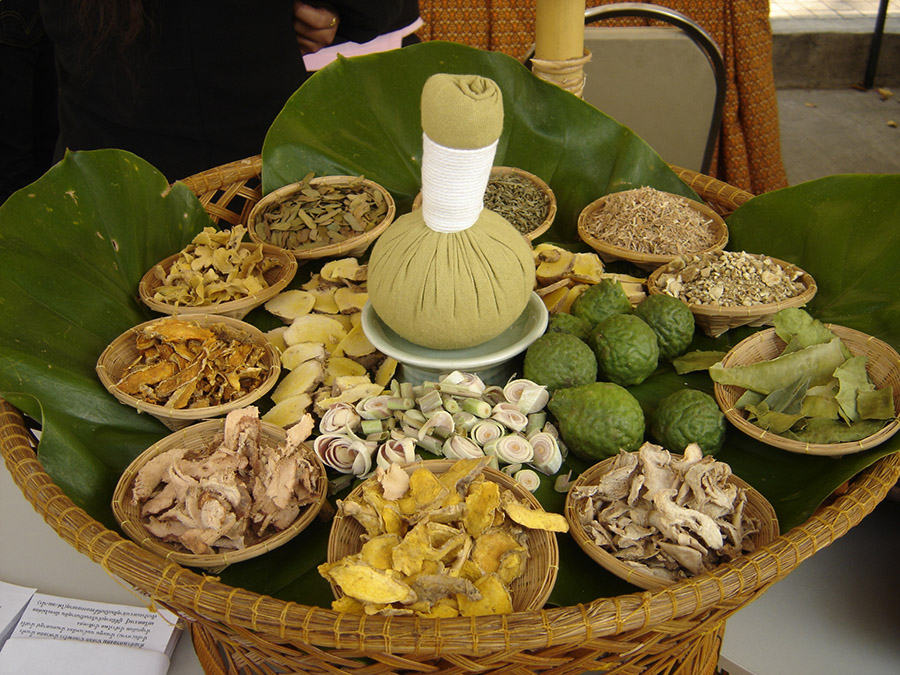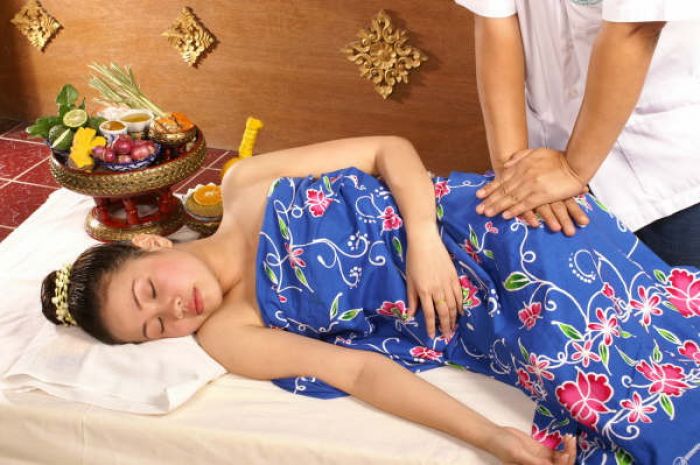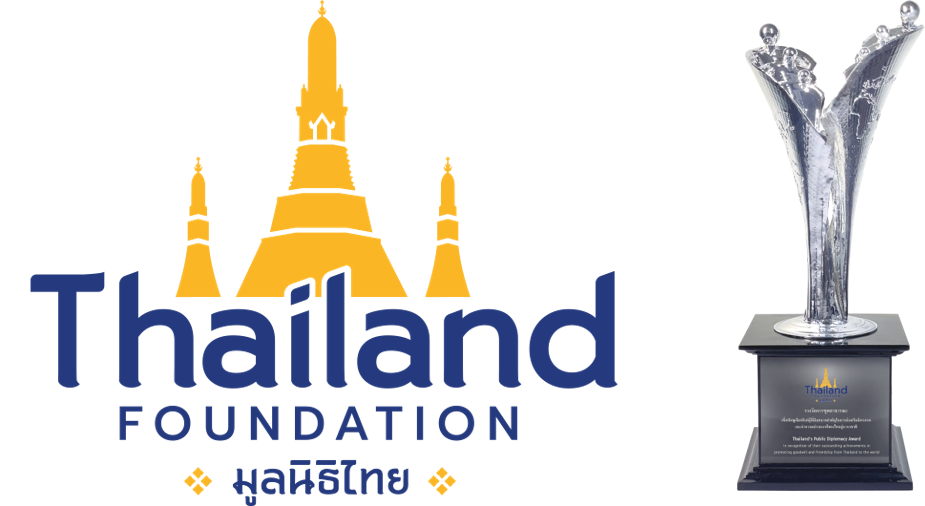Yu Fai: The Reviving Fire

[cr. Wikipedia]
Thai people believe that, while men are obligated to fight against invaders to protect their homeland, women are also fated to risk their lives in childbirth. This may sound overstated currently, as delivering a child is not that dangerous these days. Yet, in the past, giving birth was considerably risky for mother and child due to the lack of proper medical treatment and knowledge that could result in death. Even the when parturition is over, the mother is still required to undertake more critical and enduring mission – raising her child. To do so, the mother needs to regain her physical strength quickly to be up for the task.
In Thailand, there is a traditional practice for all mothers to take on after parturition. It is generally known as ‘Yu Fai’ (อยู่ไฟ) – literary meaning ‘stay on fire’. The concept of this traditional home retreat is to use heat from fire to cure the mother’s childbirth wounds and restore her health. The treatment is not only good for physical recovery; it is also beneficial for mother’s mental revival.
Since ancient times, Thai ancestors had sought out the most effective way to restore women’s physical condition after childbirth. They finally learnt that fire was a natural medicine, as its heat could help cure wound, expel body waste (amniotic fluid, in particular), stimulate blood circulatory system, and relieve the body off pain and tensions. This ancient wisdom, therefore, has been adopted for the mother’s treatment after childbirth, in combination with herbal and massage therapy.
The Fire Retreat
The principle of Yu Fai is to keep the mother in a heated environment for at least one week and up to one month. Hot massage therapy is also employed as well as food control.
During Yu Fai, the mother lies on the raised floor or narrow bed made of wooden planks with a fire heater or hot stove underneath. Hot massage is applied on her womb and hip daily, using an herbal compress ball or ‘luke pra khob’ (ลูกประคบ) made of heated sea salt covered with water lily leaf and a piece of cloth. The details of practice in each region may be varied.
In this course of action, the fuel for fire heater is an important factor. The firewood or charcoal used in Yu Fai must be non-toxic and produce no fire flakes and minimal smoke. The woods are usually taken from a living tree (not dead ones), especially the ones with auspicious name. Before drying in the sun, the bark of cut woods must be peeled off since it causes smoke and nauseous smell when burning. A jar of water is also placed in the room, ready to extinguish the flame in cases of emergency.
Throughout Yu Fai period, the mother restrains from doing any other activities, but resting. She is required to change her lying position every 15 minutes to ensure that every part of her body is exposed to the heat equally. Also, the mother will have to sit over the fire stove, spreading her legs in order to dry her private parts. Breast heating is also required, for more milk production. She could only have hot drinks and take hot bath without soap or shampoo.
Steam and Massage
Apart from firewood heating, there are other treatments used during the fire retreat, including herbal steam sauna, hot massage with compress ball, hot salt compressing, and sitting over hot charcoal. Herbal sauna and massage are mostly adopted by rich families as they are quite costly.
Herbal stream sauna is performed in a tent made of bamboo and covered with cloth. The tent is placed on upper terrace with a bamboo pipe connected to a boiling pot of herbal medicine on the ground floor. Hot steam is delivered from the boiling pot to the tent through a bamboo pipe. Alternatively, the hot pot can be placed directly in the tent of which the mother will have to open the lid to release herbal steam little by little. The sauna treatment takes around 15-20 minutes each session or 30 minutes for maximum. It helps to expel fluid waste, stimulate blood circulation, and relieve muscle tension.
The common herbs for this sauna treatment are pomelo’s peels, som poi (Acacia concinna) leaves, sweet sedge, lemongrass, morning glory, kaffir lime, and salt. In the North, the mother will apply a mixture of herbs, liquor, and camphor on her body before entering the sauna tent. The leftover herbal medicines can be applied on the body, especially the breasts, and massaged into the skin with hot compress ball. The left over liquid can be used for bathing as well.
The herbal compress ball is made up of a variety of herbs, such as Cassumunar ginger, turmeric, sugar cane, and som poi’s leaves. In some cases, lemongrass, turmeric, shallot, galangal, kaffir’s peels, and camphor are added, while some formula requires a greater variety of local herbal plants.

Look prakop or herbal compress ball [cr. Manager Online]
Another remedy is to compress hot pot filled with sea salt on the womb, thigh, and waist – this can help expel amniotic fluid and foster uterus firmness quickly. This cure is usually performed twice a day, early morning and late afternoon, for at least 3-4 days after parturition or throughout retreat period.
In the past, there was also another treatment to help restore a woman’s private parts and uterus after childbirth. It is called ‘nang thaan’ (sitting over charcoal). The mother would be sit on a bottomless chair over a stove. Burning charcoals in the stove would be sprinkled with dry herbs, such as kaffir leaves, Cassumunar ginger, turmeric, sugar cane, and betel palm to create healing smokes. In the northern region, burning stones were used instead of charcoal. The mother would sit overt a pit of burning stones inside. Steam is generated by dropping Cassumunar ginger water on to the stones. Currently, these two methods are no longer practiced.
Diet and Length
In the past, all kinds of meat are strictly prohibited during Yu Fai course. Foods of cold nature, according to Thai traditional medicine, are also avoided. These include fresh fruits and vegetable, especially ones with strong smell, as they may cause flatulence. Preserved foods are also prohibited. The basic menu for a mother during the healing process is rice with dried fish or ‘khao chi’ – barbecued sticky rice. Today, however, mothers follow a more wholly nutritious diet.
The length of Yu Fai period ranges from seven days to one month – the longer, the better. The first childbirth requires 15 days of healing. The duration also differs in each region. In the North, it takes over a month long for the first childbirth and 25 days if delivering a baby boy. In Central, the length is usually in odd numbers: 7,9 11,13 …. up to 29 days. Young mothers are in need for a longer retreat than old ones.
Familial Bond
In the past, the preparation of Yu Fai usually took months long. Most of the duties were taken care of by the husband. These included cleaning the house, arranging the stove, collecting herbs, stocking firewood and food supply, as well as the construction of the ‘mae sa nan’ – a narrow bed made of bamboo or planks, for his wife to lay on. Another duty of the husband is to keep the fire burning day and night. A distinguished flame is considered bad omen. The husband’s support and devotion is crucial in helping the wife recover quickly.
It is undeniable that the mother goes through many discomforts throughout the period of retreat. Perhaps this is the reason why people in the Northeast calls the process ‘Yu Gum’ (literally “staying in karma”), while Northerners refer to the regulations the mother must observe throughout the period as ‘Gum Yu Gum Kin’ (living and eating karma). The implication here is that, Yu Fai is so laborious that it feels like one is suffering through karma.
The hardships of Yu Fai offer an opportunity for reflection. Woman in the community come together to offer the mother support. The mother, in turn, uses the opportunity to reflect on the hardships of carrying, delivering, and raising a child, readying herself for what is to come. The reflection is also expected to help her develop deep gratitude for her mother’s sacrifices, forging a stronger bond between mother and daughter.
Yu Fai Today
Today, Yu Fai is less strict as the process have been adjusted to match modern lifestyle. At present, lying over fire heater is mostly skipped, except in some rural area where traditions are still being preserved. Only herbal steam sauna and massage with hot compress ball remain popular as treatments for post-childbirth stage. Mothers can hire an expert to provide all stuff needed for retreat, or purchase ready-made treatment sets. Food and nutrition follows the guidelines recommended by modern medicine.
Although people still see the importance of Yu Fai, the values of traditional practices, especially the mother’s reflection and the husband’s devotion, have been lost to modifications. Thus, it is important to keep the intrinsic values in mind when one undergoes the ancient rite of fire retreat.

[cr. mamaexpert.com]
**************************
Reference
Treetheppatima, Sa-nguansri. Yuu Fai Sard Hang Karn Fuen Fuu Guy Jai Mae [Yuu Fai: A technique to heal a mother’s heart and soul]. Watthanatham Journal: Department of Cultural Promotion, vol. 55, no. 2, April-June 2016, p. 58-65. Available at http://magazine.culture.go.th/2016/2/mobile/index.html#p=60.


